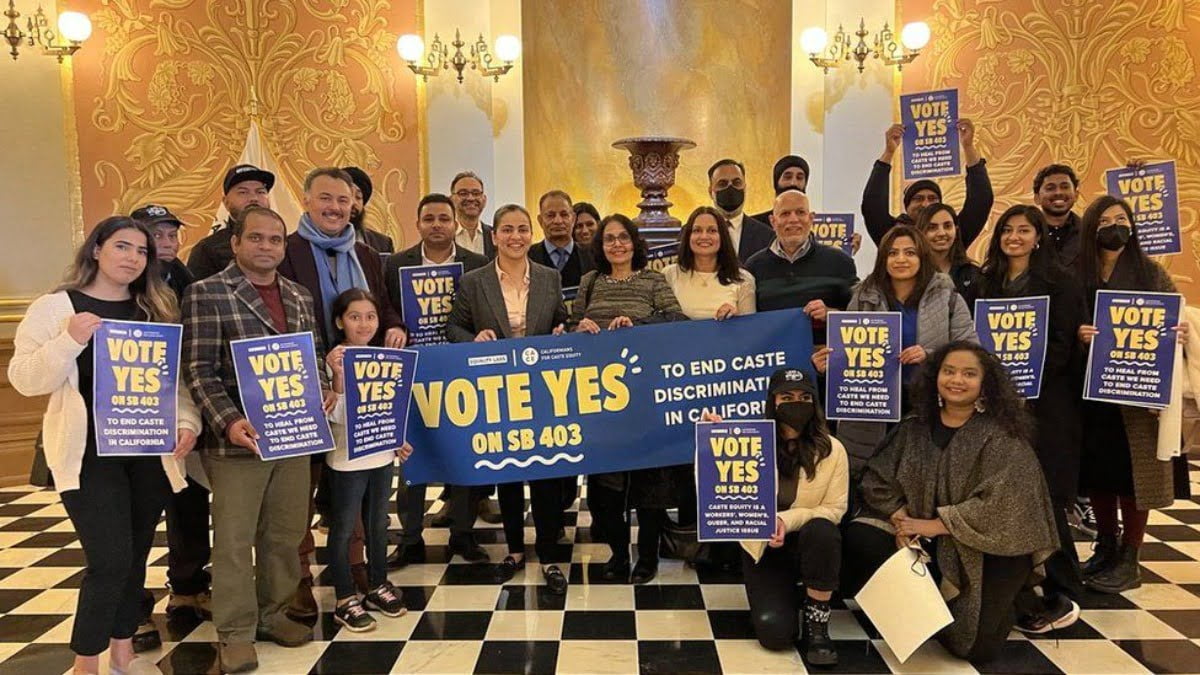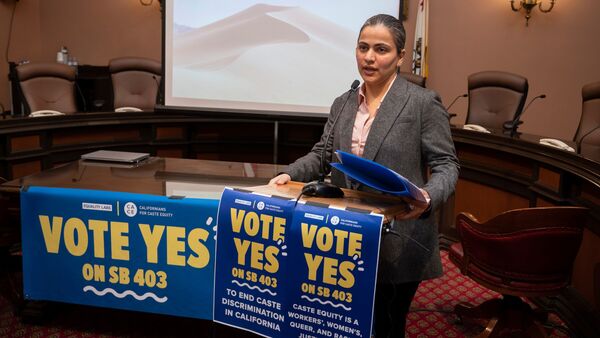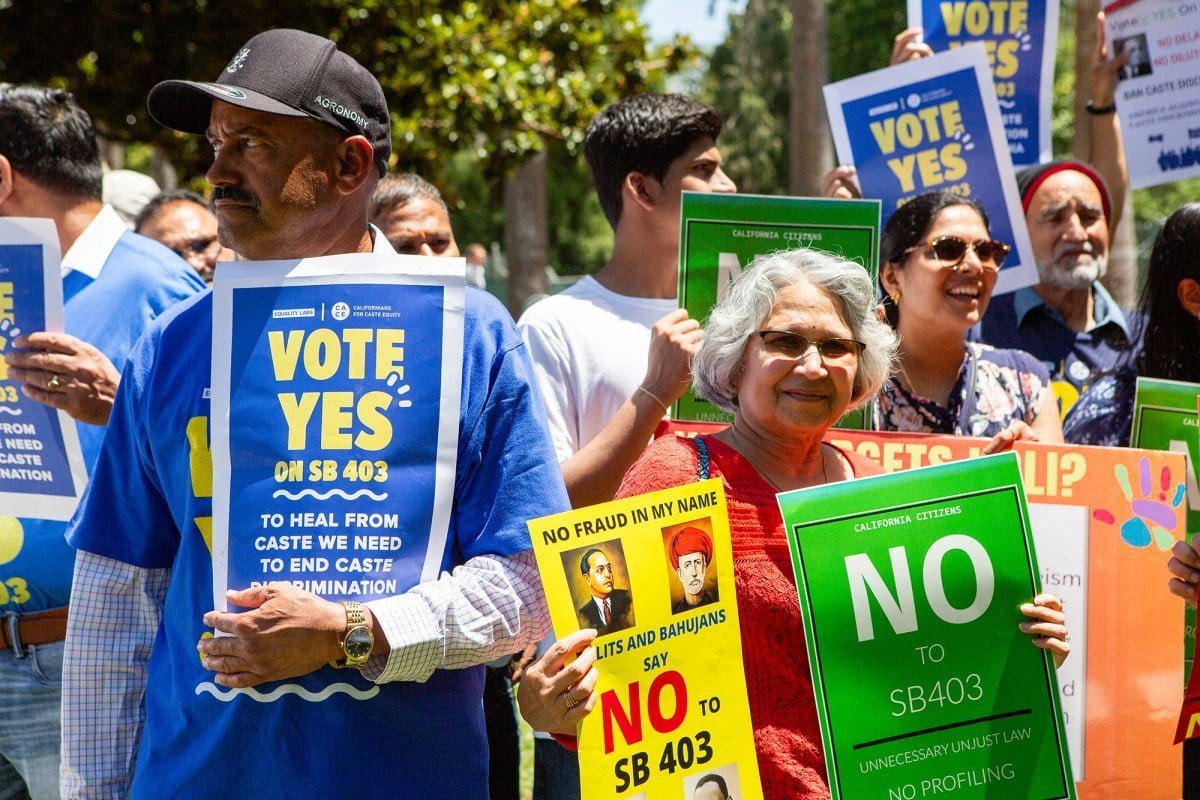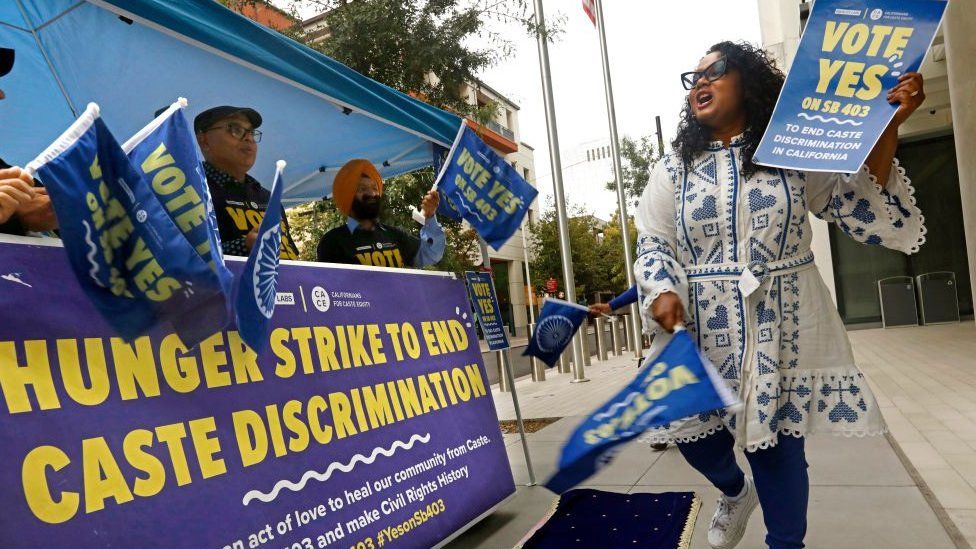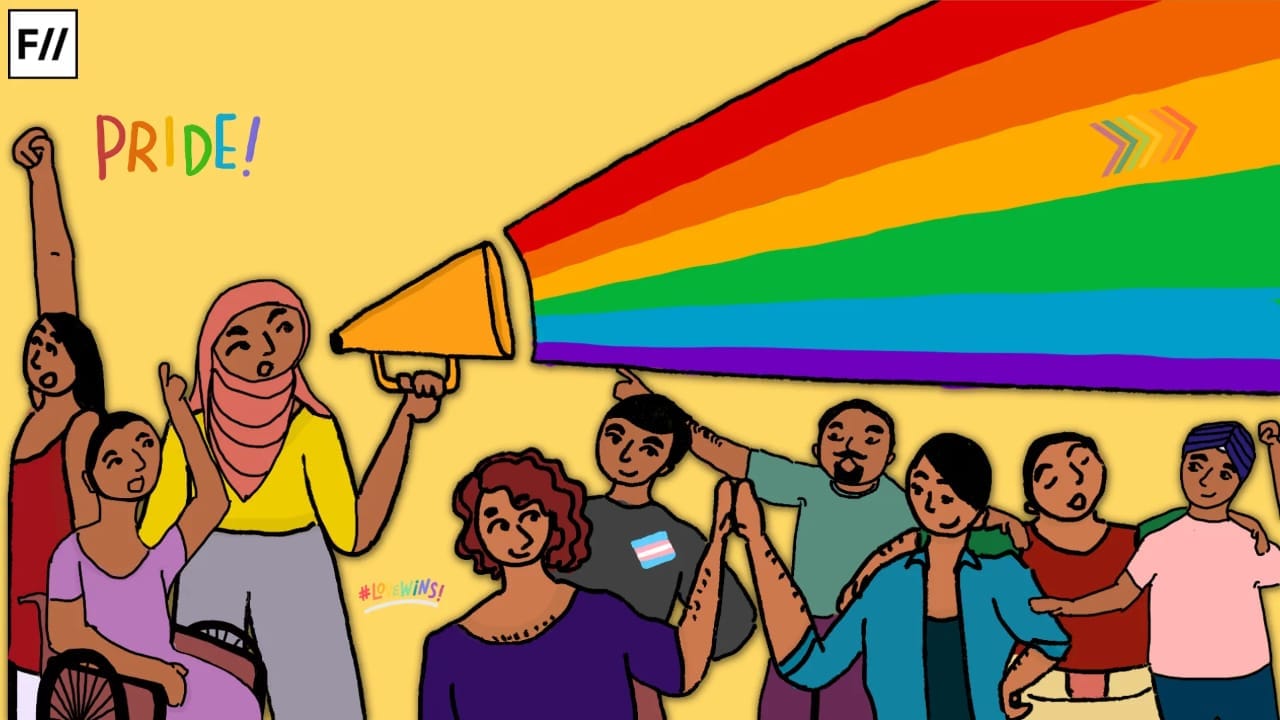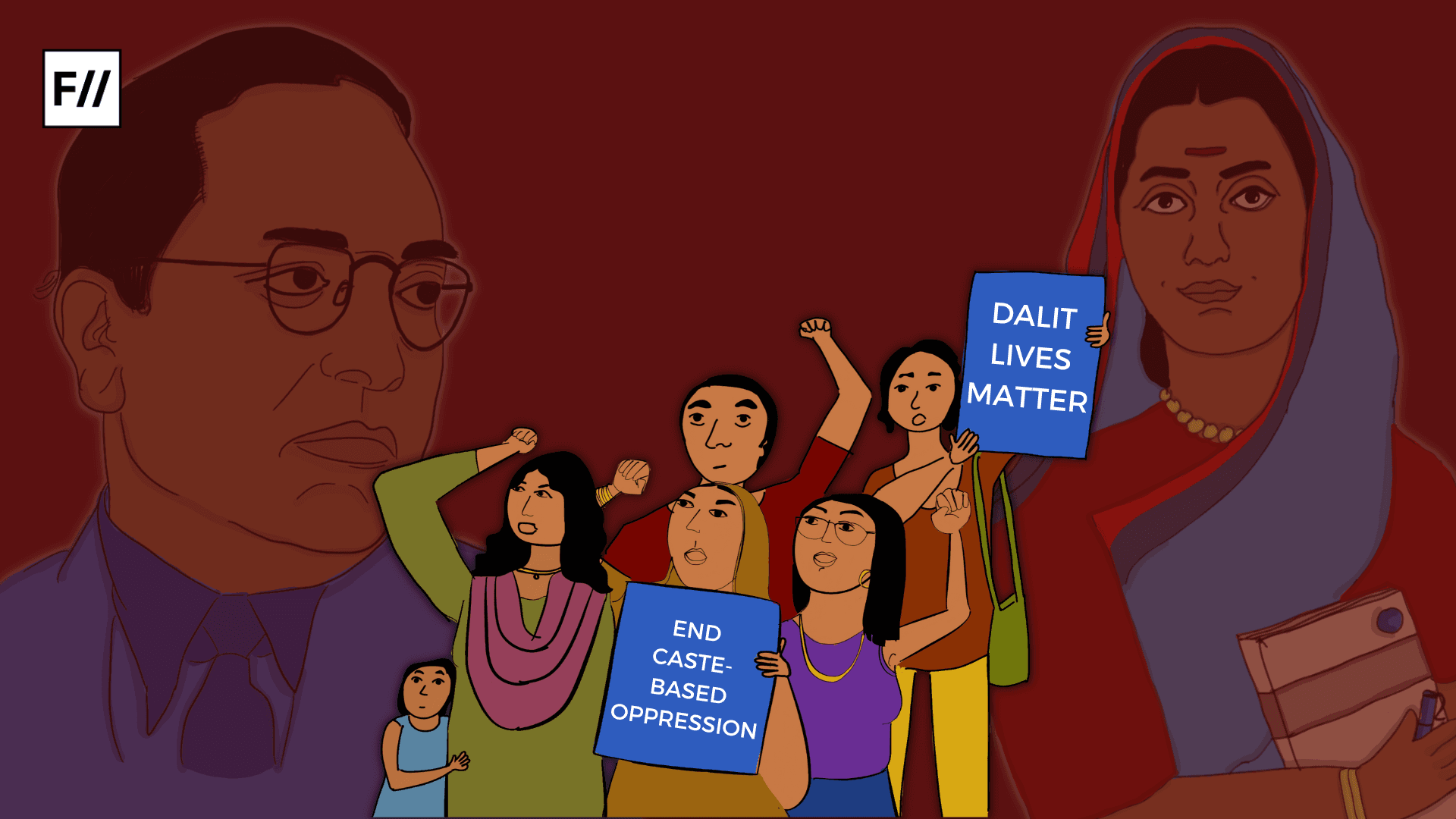A bill that would have outlawed caste discrimination was vetoed by California Governor Gavin Newsom, raising the unresolved issue of whether or not the social hierarchy-based racism is already covered by state and federal law.
It was on October 8, that Gavin Newsom, the Governor of California, rejected a historic anti-caste discrimination measure that had just been passed by the state assembly, calling it “unnecessary” and pointing out that the US state already had laws that prohibit caste-based discrimination.

‘In California, we believe everyone deserves to be treated with dignity and respect, no matter who they are, where they come from, who they love, or where they live,’ said Newsom, according to a report.
A major part of the Indian-American community, who were opposed to the law on the same grounds, has praised the governor’s action while South Asian activists who pushed for the bill’s approval were severely hampered by the Governor’s decision. Activists put up the caste discrimination bill, contending that US statutes prohibiting ancestral discrimination do not expressly exclude caste-based discrimination.
California would have been the first US state to formally ban discrimination based on caste if the Governor had signed the bill called as “SB 403”.
California would have been the first US state to formally ban discrimination based on caste if the Governor had signed the bill called as “SB 403”.
Senate Bill 403: What is it about?
According to the California Legislative Information, SB 403 defines “caste” as ‘an individual’s perceived position in a system of social stratification on the basis of inherited status.‘ The bill further explains that caste ‘may be characterised by factors that may include, but are not limited to, inability or restricted ability to alter inherited status; socially enforced restrictions on marriage, private and public segregation, and discrimination; and social exclusion on the basis of perceived status.’ According to SB 403’s legislative history, caste discrimination occurs across several industries in various forms, including harassment, bias, wage theft, and even human trafficking. The legislative history singles out caste discrimination as being an issue in the tech industry and notes that some tech companies already include caste as a protected class in their policies.
During the month of August, 2023, the California state assembly passed an anti-caste discrimination bill, becoming the first US state to address caste discrimination through legislation.
It was the Democratic state senator Aisha Wahab, the first Muslim and Afghan American who was elected to the California Legislature, who filed the bill in the month of March. Senate Bill 403 would have delineated caste as being protected under the existing category of “ancestry” in the state’s civil rights law, avoiding many persisiting confusions.
It was the Democratic state senator Aisha Wahab, the first Muslim and Afghan American who was elected to the California Legislature, who filed the bill in the month of March.
‘As a caste oppressed Indian Muslim, my freedom is connected to the freedom of all caste oppressed people and I am filled with unstoppable joy with our victory in the assembly today. We are united in our ask for caste equity and we ask all folks to stand with the cause for justice and love. It is important to me that California legislators listen to the pain of caste oppressed people of all faiths and work swiftly to remedy this violence. Justice can no longer be delayed and we cannot wait to build with fellow Californians on this important issue‘, said Sana Qutubuddin, member of Indian American Muslim Council in the press release that was released on August before the governor’s decision on the bill.
Does the state law really offer civil rights protection?
In a statement explaining his veto decision, Newsom said that the measure was ‘unnecessary‘ because discrimination based on caste is already prohibited in the state and he ‘cannot sign‘ the bill known as “SB 403,” which was just passed by both the House of Representatives and the Senate of the California State Assembly with a huge majority.
After the bill was rejected, social media was overflowing with conversations from many South Asian communities who were heartbroken at the decision of the California governor.
‘We are deeply disappointed to learn that Gov. Gavin Newsom has chosen to veto SB403, a historic bill that sought to ban caste discrimination in California. In partnership with the California Coalition for Caste Equity, the Sikh Coalition was proud to sponsor this legislation‘, the Sikh Coalition tweeted on twitter.
‘The Sikh community knows firsthand the pain and trauma that comes with being targeted by hate, and the Sikh faith explicitly condemns caste discrimination. Accordingly, we joined more than 45 Sikh organisations and gurdwaras in California urging Gov. Newsom to sign SB 403.
While we are frustrated by this failure to take a meaningful step forward for the civil rights of all, we will continue to fight for legislation that protects all communities—including the Dalit community—from hate and discrimination‘, the tweet further said.
Is caste discrimination exclusive to India and Hinduism?
Despite being frequently linked to India and Hinduism, caste has recently migrated to other South Asian nations and religions. Some organisations, especially those of Indian descent, protested the California law because they believed it unfairly portrayed an entire population.
Looking at India, a person’s caste is determined at birth under India’s centuries-old caste system, which has become a strict social order centred on ideas of purity. Even though caste discrimination was officially abolished in India immediately after it gained independence in 1947, caste-based prejudice and injustice still exist and have subsequently crept into other nations as mentioned.
It was around last month that Fresno became the second U.S city to ban caste discrimination after Seattle, where the Fresno City Council Vice President Annalisa Perea said in a press release: ‘I’m proud of our city for once again, raising the bar on civil rights protections, while we acknowledge that discrimination won’t end overnight, our city took bold action by passing this anti-discrimination policy to strengthen civil rights protections against caste discrimination.‘ Said the report.
Caste systems or inherited social hierarchies that are most prevalent in India, split society into classes that greatly influence everyone’s life
Caste systems or inherited social hierarchies that are most prevalent in India, split society into classes that greatly influence everyone’s life. People from lower socioeconomic classes claim that both in India and among the diaspora overseas, they experience violence, a lack of social mobility, and isolation, the report further mentioned. California was the next on the line, had the bill not been rejected.
According to the International Dalit’s Solidarity Network, an estimated 260 million individuals experience caste prejudice globally, with the majority residing in South Asia. Numerous civic, political, economic, social, and cultural rights are being violated. It also says that people are divided into unequal, hierarchical social groupings by caste systems. Other caste groups’ view those at the bottom as “lesser human beings,” “impure,” and “polluting.”
The Caste System has made inroads into Iowa from its countries of origin, which are mostly South Asian nations like India, Bhutan, and Nepal.
Analysing what fuels these, Thenmozhi Soundararaja, the Indian American Dalit rights activist and executive director of South Asian advocacy organisation Equality Labs states that this discrimination is fueled by rising South Asian immigration, which includes an increasing number of people from lower castes. According to Dr. B.R Ambedkar, ‘If Hindus migrate to other regions on earth, Indian caste would become a world problem.‘ This is a current phenomenon now. ‘Caste has been here (in the US) for a long time,‘ said Thenmozhi Soundararajan, ‘Wherever South Asians go, they bring caste.’
She co-authored a report of a new survey “Caste in the United States” which discovered that caste prejudice is still present in the country. This conclusion calls into question how South Asian Americans view themselves and their past.
Unfortunately, caste continues to be a significant psychological component influencing people’s bodies, brains, and social relationships despite the significant changes brought about by forces of democratisation, globalisation, and progress. All we have is a future where each of us can thrive to eradicate these discriminations and bring out a better world.
